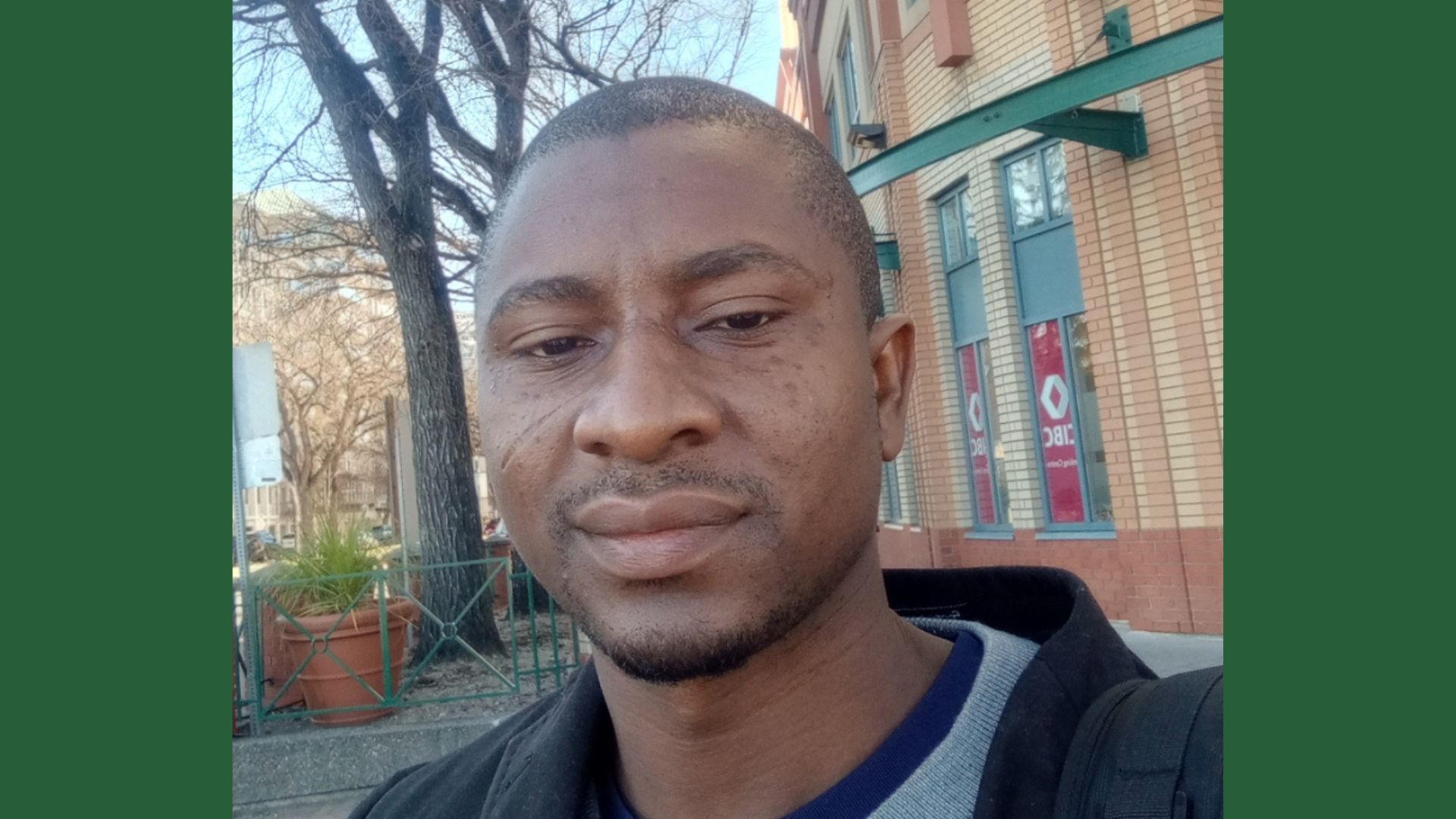Visiting scholar from Nigeria is researching strategies to increase vaccine uptake in children
Shirley Wilfong-Pritchard - 6 December 2023

Thanks to the generosity of donors, the Faculty of Nursing provides grants through the Global Nursing Office to visiting scholars from low- and middle-income countries who wish to pursue their research here to improve patient outcomes in their home countries. The program aims to build capacity for international research collaborations, foster two-way knowledge sharing and help address global health inequities.
Umar Yunusa is a senior lecturer in the Department of Nursing Science at Bayero University in Nigeria, a registered public health nurse and a fellow of the West African Postgraduate College of Nursing and Midwives. He completed his PhD in public health nursing in 2021.
Yunusa’s goal is to stop the spread of preventable childhood diseases by increasing rates of complete and timely vaccinations — both in Nigeria and Canadian immigrant populations. To help achieve that, he is in Edmonton for three months, working under the supervision of Shannon MacDonald whose research focuses on supporting immunization best practices and policies, particularly in underserved populations.
We contacted Yunusa to learn more about his research and how his time at the U of A will benefit his home community in Nigeria.
Tell us about your research.
My PhD work focused on assessing the effectiveness of mobile-phone reminders to local parents to complete timely routine vaccination series for their children. Immunization coverage in Nigeria ranges between seven and 75 per cent. With reminders, the vaccination rate in my local area increased from 34 to 57 per cent.
After graduation, I broadened the geographical area and added a randomized control to ensure my initial results were not just by chance. The result was 61.5 per cent, but still not up to the international global standard of 90 per cent set by the World Health Organization to achieve herd immunity.
Here in Canada — with the support of my supervisor and the Applied Immunization Research Team — I did the data analysis of my initial research and wrote the manuscript we are preparing for publication. I want to do a systematic scoping review to see if further possible interventions can be done to bridge this gap.
We are about to start another research project to look at possible inequities faced by Black or Muslim immigrants to Canada in accessing immunizations.
How will your research address unique health challenges in your home country?
In 2014, polio had been eradicated from Nigeria but it resurfaced two years later. There have been recent outbreaks of Lassa fever, measles and diphtheria. Immunization rates declined during COVID-19 and between 2021 and 2022 about six million children were unvaccinated — a very high number.
When more children complete their vaccines on time you increase herd immunity and reduce outbreaks and epidemics of vaccine-preventable diseases, lower hospitalization rates and decrease child morbidity and mortality. This will impact not just the children and their parents, but also the government by reducing the costs of government-provided health care. This is the long-term goal of my research.
How has funding contributed to your research?
Bayero University provided the initial grant to conduct the research component of my PhD and another to continue my research after graduation. They also pay my salary while I’m here.
The Visiting Scholar funding has helped a lot, enabling me to travel outside Africa and see what is happening in the western world and what is available on campus, including the simulation lab, this workspace, desktop, internet connection and access to the university library with numerous resources.
But most importantly, I have access to experts and an enabling environment to do my research.
How has your research supervisor helped?
Dr. MacDonald helped me prepare my Visiting Scholar application, engaged me in training meetings with her research team and found conferences where I learned about Canadian methodologies and study results.
She guides me on what to do next at our progress meetings and I join her postgraduate research classes, where I’ve learned how students are taught here.
She has given me access to workshops on writing and preparing graphs through the Academic Success Centre and Centre for Teaching and Learning and reviewed and commented on my research manuscript that we are preparing to send for publication.
Everyone on the research team is always ready to assist in any way possible. Back in Nigeria, we have a lot of titles. But here people prefer to be called by their first names. I think that is very amazing. It’s not just about the title, but what you can deliver.
Have your research findings been published?
Articles from my PhD research are published in Vaccine and Journal of Pediatric Nursing. Previous research findings can be found on ResearchGate or Google Scholar.
What advice would you give to those interested in the Visiting Scholar program?
The first thing is to work hard. Applications pass through a rigorous review. Try to publish in good journals and have a competitive resume. Come here, establish a network, maintain the relationship beyond the three months and continue your research.
What’s next?
I hope to continue my relationship with the U of A. I plan to continue publishing and use the networks created here to collaborate on future research.